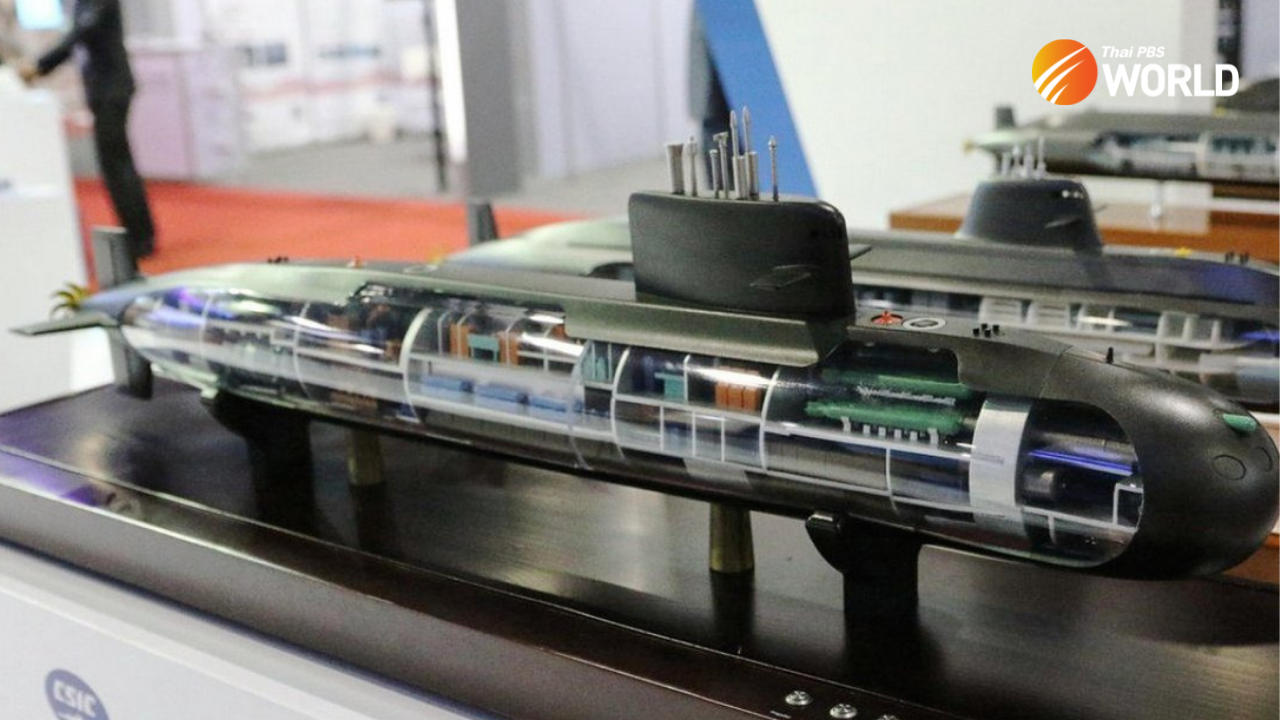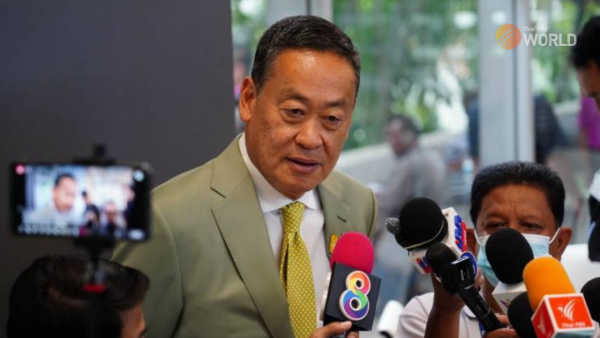How Thailand’s seven-decade submarine dream hit the rocks and sank

The Royal Thai Navy’s dream of acquiring its first submarine in over seven decades has been shattered once again.
Defense Minister Sutin Klungsang announced last Friday that the Thai government would suspend its purchase of a Chinese-built S26T diesel-electric attack submarine and accept the Navy’s proposal to spend the money on a frigate from China instead.
The decision came after the Chinese state-owned boatbuilder failed to procure a German-built MTU 396 diesel engine for the sub, as specified in the contract with the Thai Navy. Germany could not supply the engine due to a European Union embargo on arms exports to China that has been in place since the 1989 Tiananmen Square massacre.
The price of the frigate is 14 billion baht, about 500 million more than the submarine, according to the Thai defense minister. But this was the “best way out”, he said, explaining that strategic cooperation and trade ties between Thailand and China contributed to the decision to alter the plan rather than cancel the deal.
Some analysts described the government’s decision to swap the sub for a frigate as a diplomatic move to please China while buying time to look for a better submarine deal from another country.
On his visit to RTN headquarters last Friday, Sutin said the decision did not mean the submarine procurement plan was canceled.
“The Royal Thai Navy’s plan to procure submarines has not been canceled. But it will be opened to other countries in addition to China,” he said. “The project will be shelved until the country is ready.”
Love affair with submarines
The kingdom procured its first submarines in 1938 – a fleet of four Japan-built small subs, which were decommissioned in 1951.
More than four decades later, in 1995, the Navy requested permission to purchase two Swedish-made Kockums submarines for 40 billion baht. But the Banharn Silpa-archa government balked at the high price and shelved the purchase plan.
In 2010, under Abhisit Vejjajiva’s administration, the Navy floated a plan to buy six second-hand U-206A subs from Germany for 7.7 billion baht. But the proposal failed to get a government green light.
The Navy revived the plan under the subsequent Yingluck Shinawatra government, but the Defense Ministry did not seek Cabinet endorsement for the proposed purchase.
In April 2015, the post-coup junta led by General Prayut Chan-o-cha endorsed the Navy’s plan to acquire three submarines. Two years later, the Cabinet approved the purchase of the first Yuan Class S26T sub worth 13.5 billion baht from China, which was due to be delivered in 2024.
Facing strong opposition
Given the go-ahead by the Cabinet, the Thai Navy in May 2017 entered into a government-to-government deal to purchase a submarine for 13.5 billion baht from China Shipbuilding & Offshore International Co Ltd (CSOC), a state enterprise under the Chinese defense ministry.
In October 2019, Prayut’s government approved a request for another 22.5 billion baht to buy two more of the Chinese subs.
The Navy said China had offered to sell the two additional submarines for significantly cheaper prices than the first sub and argued that canceling the purchase would dent Thailand’s credibility. In defending its purchase plan, the Navy said Thailand needed submarines to protect maritime interests worth 24 trillion baht. It also pointed out that many of Thailand’s neighboring countries already had subs.
However, the plan to buy new submarines ran into strong public opposition, with doubts voiced about the expense and the strategic need.
The RTN then had to postpone payments for the purchase of the Chinese submarines several times after the COVID-19 pandemic struck in 2020.
In 2020, the Navy returned 3.37 billion baht from its budget to help fund the government’s fight against the pandemic. Then another 3.42 billion baht was removed from its budget for fiscal 2021. Again, In July 2021, the Navy withdrew its request for 900 million baht as part payment for the sub purchase.
German engine headache
Then came the German engine headache. The Navy disclosed in February last year that, because of the EU embargo, there was only a slim chance the Chinese submarine would be delivered with the German engine. Several rounds of negotiation ensued between the Thai Navy and CSOC representatives over China’s offer to use its CHD620 engine as a replacement.
With solid performance guarantees from China, the Thai Navy was about to seek Cabinet approval to buy the sub with a Chinese-made engine. But following the election in May, the new government insisted on the original deal for a German engine and asked the Navy to revise its project.
The Navy came up with two shopping options – a frigate that could combat submarines, or an offshore patrol vessel. The government opted for a frigate, according to the defense minister.
By Thai PBS World’s Political Desk






